How to Write a Powerful Statement of Purpose for MSW Programs
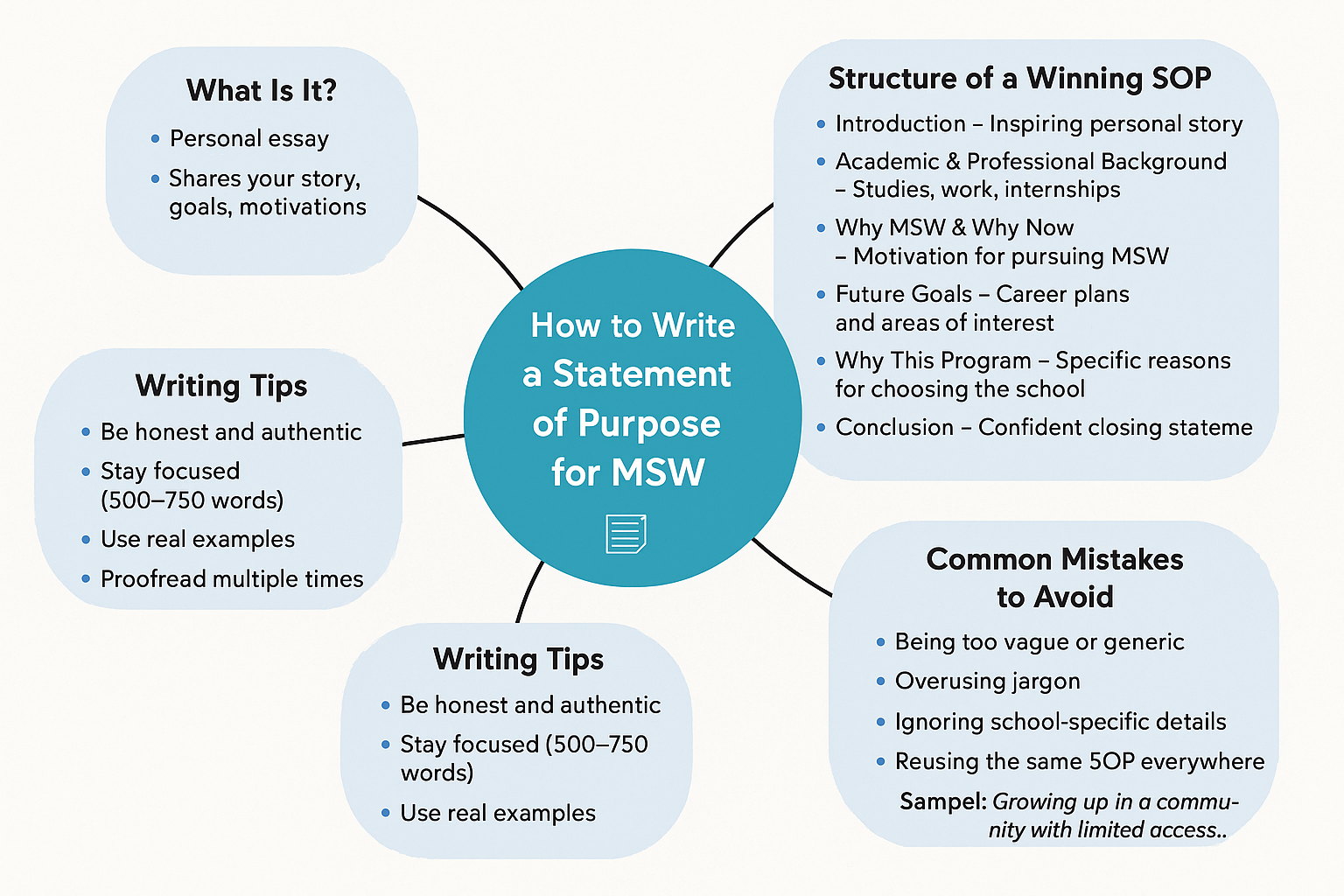
Your statement of purpose (SOP) is your chance to speak directly to the admissions committee. It’s where you show who you are beyond grades and test scores. In this guide, you’ll learn exactly how to write a powerful MSW statement of purpose that gets noticed.
What Is a Statement of Purpose?
A statement of purpose is a personal essay that highlights your motivation for pursuing a Master’s in Social Work. It explains:
- Why you want to study social work
- What experiences have shaped you
- Your career goals
- Why you’re choosing that particular program
Structure of a Winning MSW SOP
Use this simple structure to keep your SOP clear and compelling:
1. Engaging Introduction
- Start with a story or moment that inspired your interest in social work
- Keep it personal, emotional, and real
2. Academic & Professional Background
- Mention your undergraduate studies and GPA
- Discuss any relevant work, internships, or volunteer experience
3. Why MSW and Why Now
- Explain why you’ve chosen to pursue this degree at this point in your life
- Share how your experiences have led to this decision
4. Future Goals
- What do you want to do after earning your MSW?
- Mention areas of interest (e.g., clinical social work, school social work, policy advocacy)
5. Why This Program
- Talk about why you’re applying to this specific university
- Mention professors, courses, or values that resonate with you
6. Conclusion
- End with a strong statement of purpose
- Express gratitude and confidence in your future
Tips for Writing a Strong SOP
Be Honest and Authentic
- Use your voice
- Don’t exaggerate or over-polish—sincerity matters most
Keep It Focused
- Stick to 500–750 words
- Avoid repeating your resume word-for-word
Show, Don’t Just Tell
- Use real-life examples to show your commitment and character
Proofread Multiple Times
- Check grammar and flow
- Ask mentors or peers to review it
Customize for Each School
- Mention what makes the program a good fit for YOU
Tip: Write multiple drafts and take breaks between them for clarity.
Common Mistakes to Avoid
- Being too generic (“I want to help people.”)
- Using complex jargon — keep it clear and simple
- Ignoring the school’s values or mission
- Submitting the same SOP to every program without tweaks

Sample Opening Line
“Growing up in a community with limited access to mental health resources, I saw firsthand the impact a dedicated social worker can have.”
Conclusion
Your SOP is your opportunity to stand out and show who you are. Write with heart, be yourself, and align your story with your goals. With the right approach, your words can open the door to a fulfilling MSW journey.

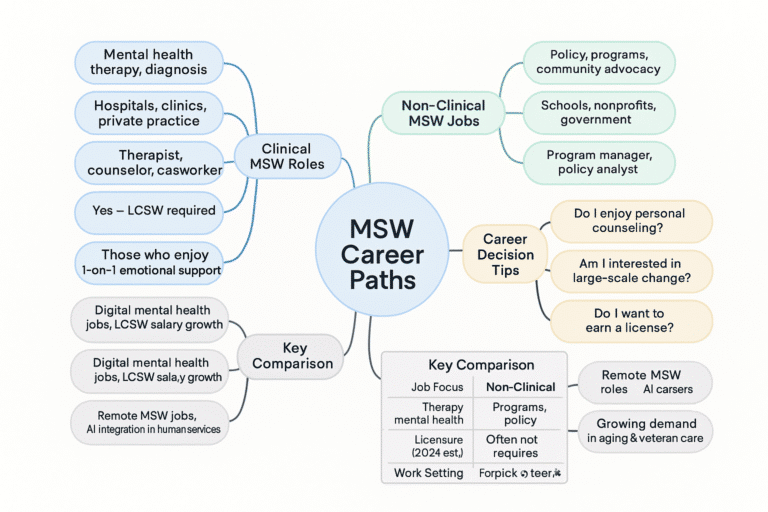
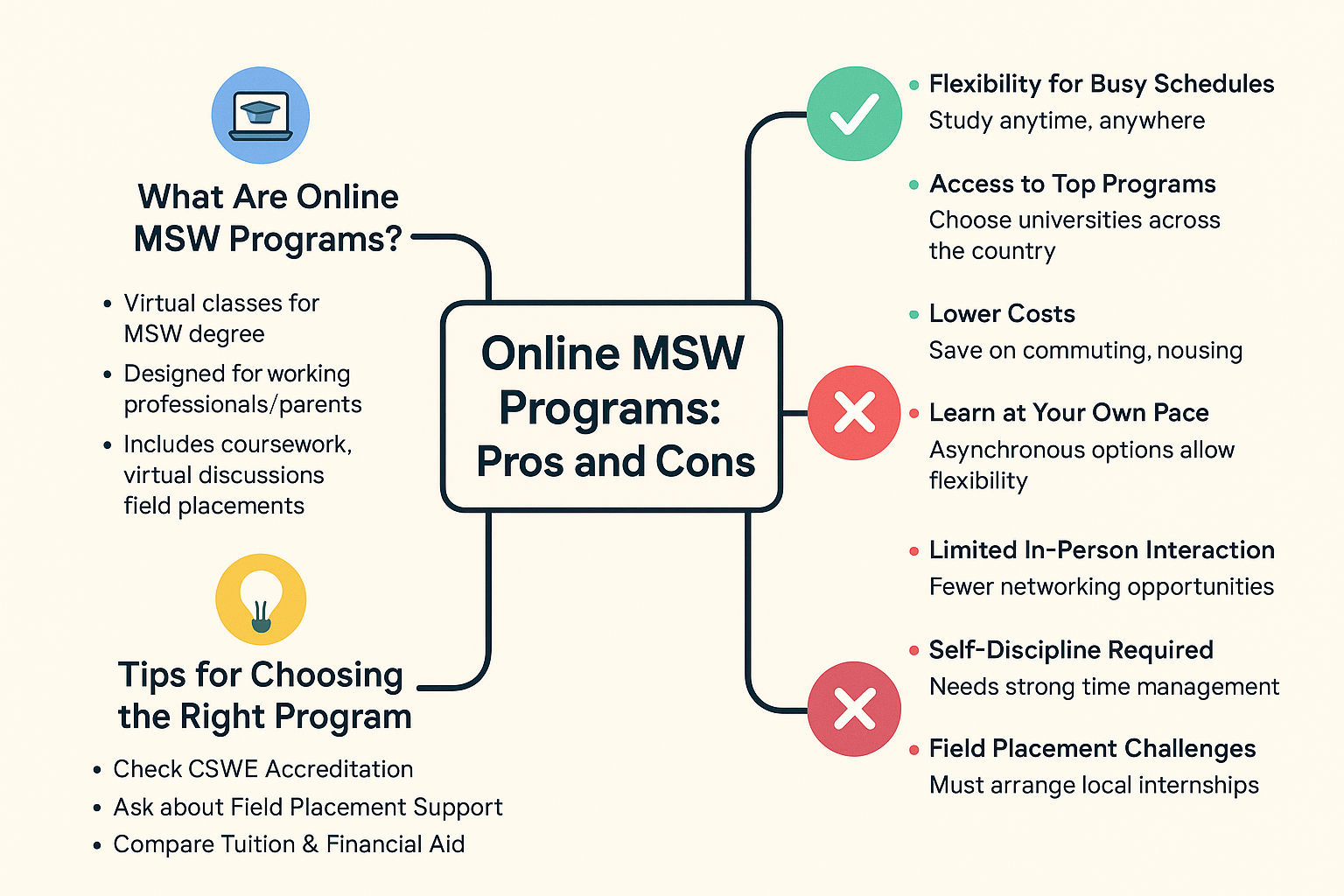
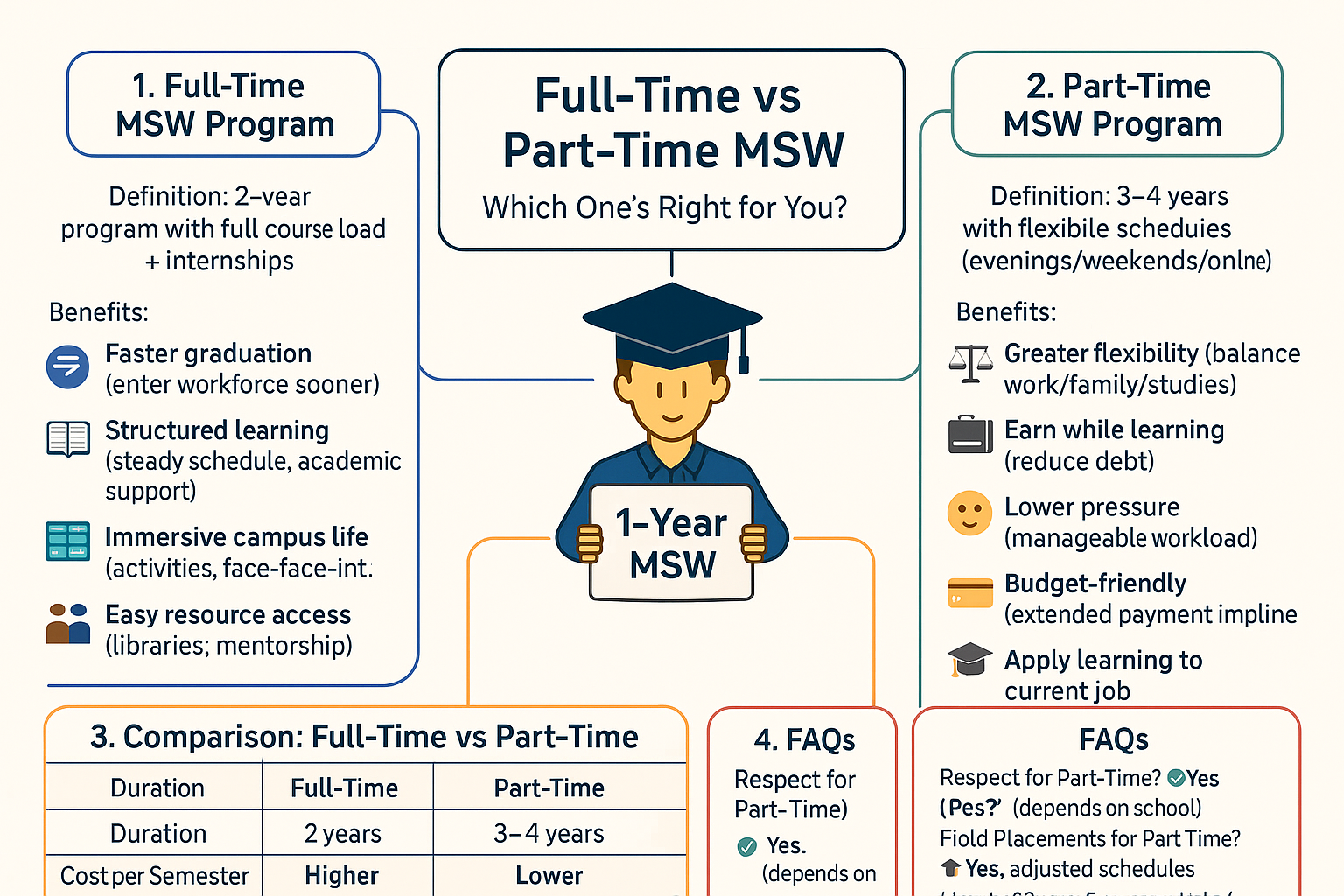

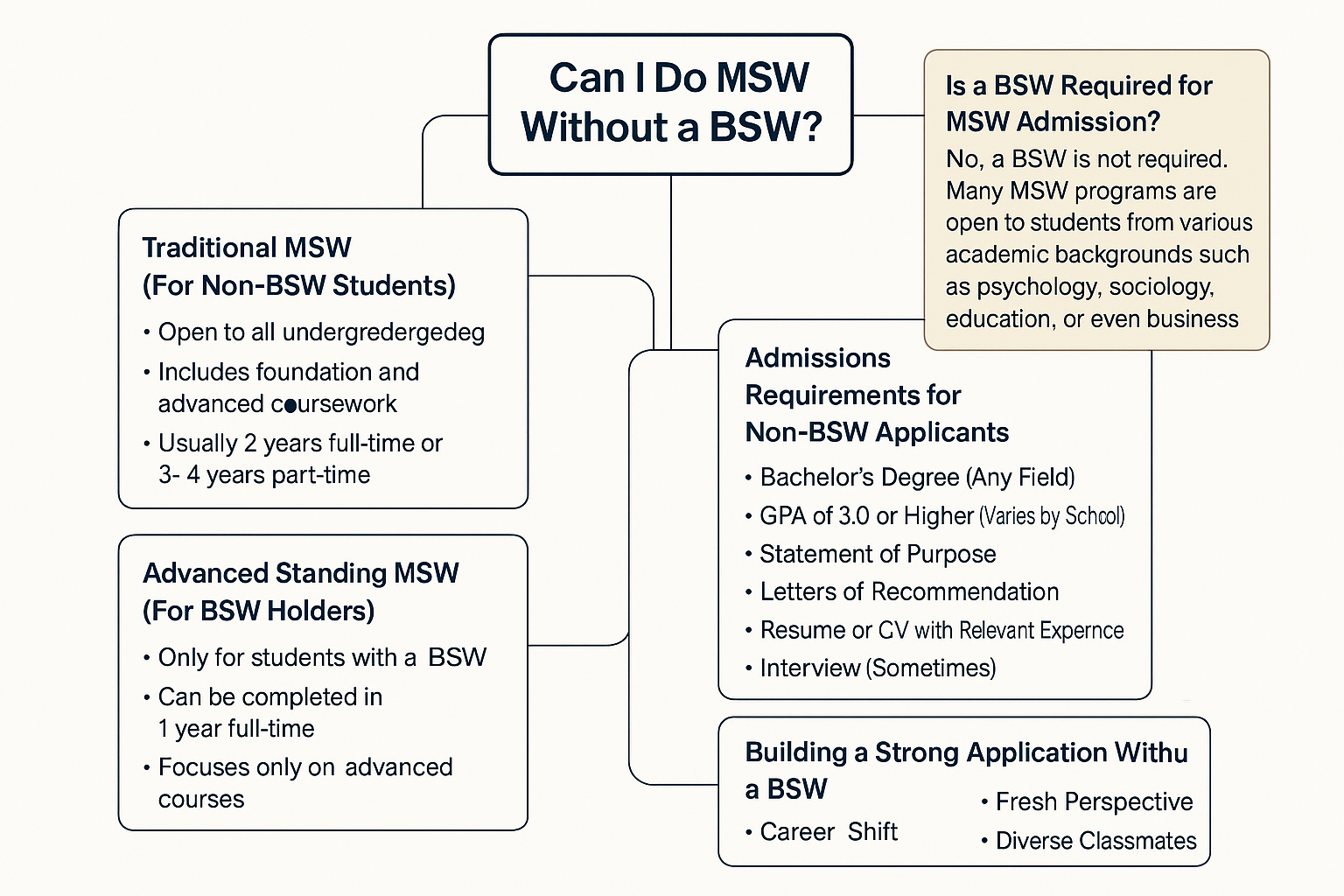
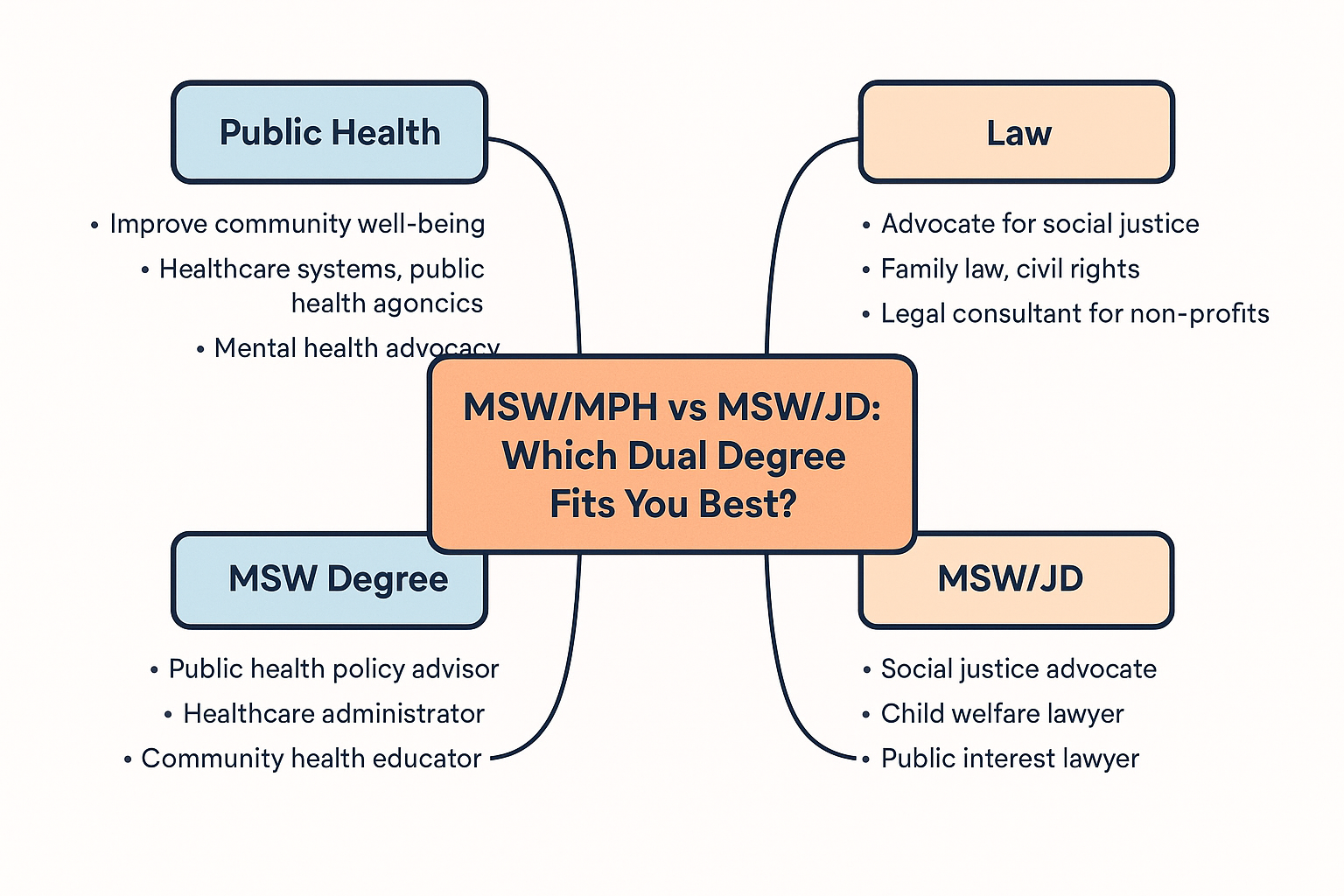
One Comment